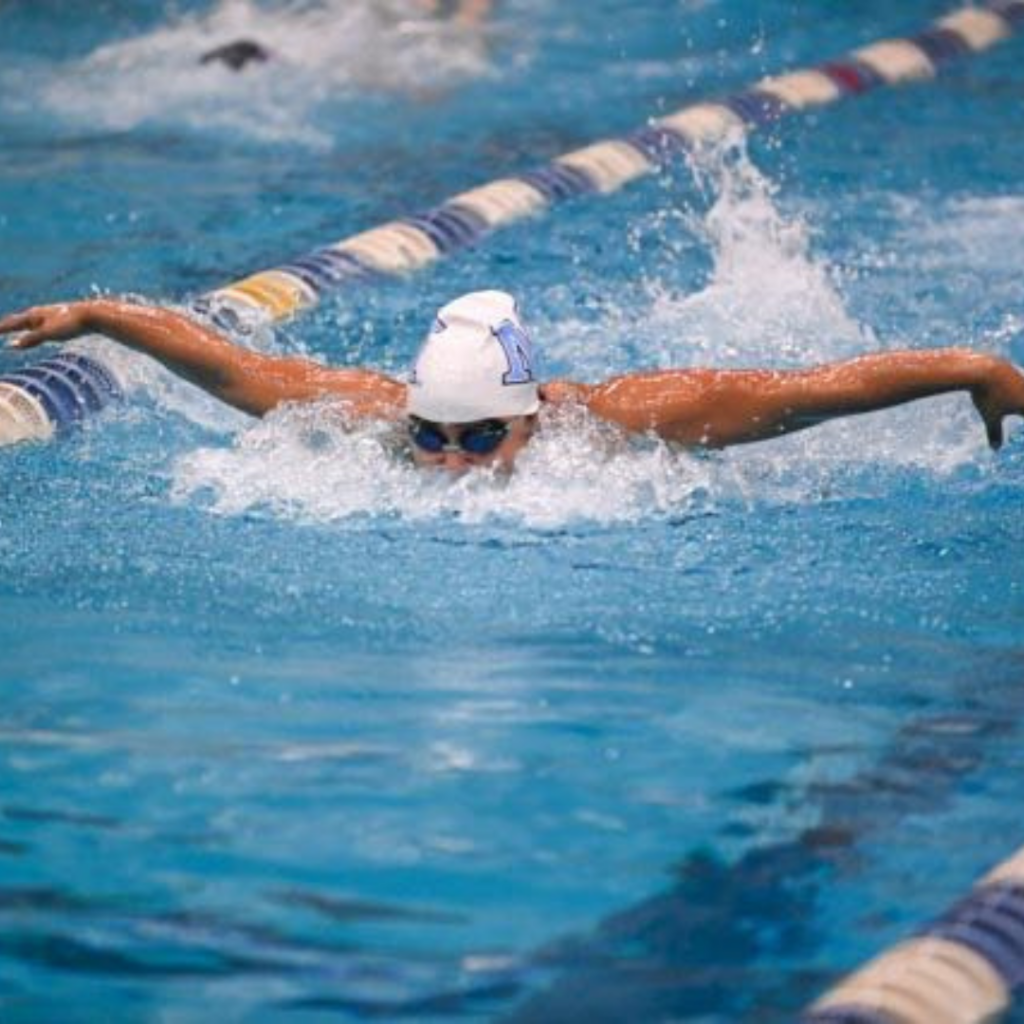Athletes are not defined by their body or their sport
By: Isabelle Irani
When I was 12 years old, I started swimming at a competitive level. The pressure in women’s athletics is imperceivable to those who have never experienced it, and as a young swimmer who experienced quick progression to a national level, being an athlete became a part of my identity. As I transitioned into a new version of swimming, the only thing I noticed was that I looked different.
As a south asian woman in a diverse city like Houston, I always had other people of color around me. People who I was able to relate to, people who looked like me. That type of community was limited in club swimming. The constant comparison started, and I began to realize that I wasn’t like the other girls I swam with every day. And so, my journey with mental health and representation in athletics began.

I fell into a rabbit hole of comparison. Every day at practice I would become angry with the fact that my body looked different than so many of the other girls, angry that they all seemed to have similar backgrounds and similar lives, and I felt as if I was alone. Unfortunately, my anger was expressed at home, and facing my parents’ innocent questions like “How was practice?” seemed to drive me over the edge.
How was I supposed to say “I hate myself, I hate my body, I hate that everyone seems to be doing better than me in school and in swimming.”, without making them think I was weak? I would explode when someone would comment on any imperfection of mine; panic and tears shed over every bad test grade, every bad practice, and race, and every time someone commented on what I looked like. My relationship with my parents broke more and more each time I pushed them away. I felt so obligated to a standard of perfection; if I wasn’t a perfect student and a perfect athlete, then who was I?
Luckily, I have an amazing mother who realized that something was wrong, and she was able to convince me to accept help from a therapist. Diagnosed with generalized anxiety disorder and high-functioning anxiety, it was soon discovered that with all the comparison to others I had done, I had forgotten who I was myself. I still remember in one of my first sessions, I was asked to describe what values I liked within myself. Not one thing came to mind. Five years later, after hundreds of hours in therapy, and countless conversations with friends, teammates, coaches, and my parents, I have realized what my values are.
I value the strength that my body possesses, and what it allows me to do every day in the pool- not what it looks like. I value learning new information and applying knowledge in a fulfilling way- not whether my grade was an A or a B. I value my family’s culture, my different experiences, and what makes me unique- the color of my skin doesn’t define me or my ability in athletics.

Getting help from a professional helped me realize that my thoughts were not who I was. My identity was never tied to my appearance, academics, or my performance in the pool, I was always ENOUGH.
Now, I often forget how I am perceived in my sport. I forget that I look different, I forget that my skin color is darker than many other swimmers around me, I forget that my body looks different than many other female athletes, and I forget all the things I used to focus all of my attention on. I forget small aspects of my sport that so many others focus their attention on because I was able to realize that those are not the aspects of being a student-athlete that I value.
Staying true to my values as a student and an athlete gave me the opportunity to do many amazing things, including now, as I attend my second-semester swimming Division 1 at The University of Maine. I work to remember and live my values every day and have so much pride as we enter a new age of diversity in swimming and sports. I hope to use my time left as a collegiate athlete to remind athletes that you are never alone, and you have never been defined by your appearance or ability.
If you are ever struggling, it’s okay to ask for help.
